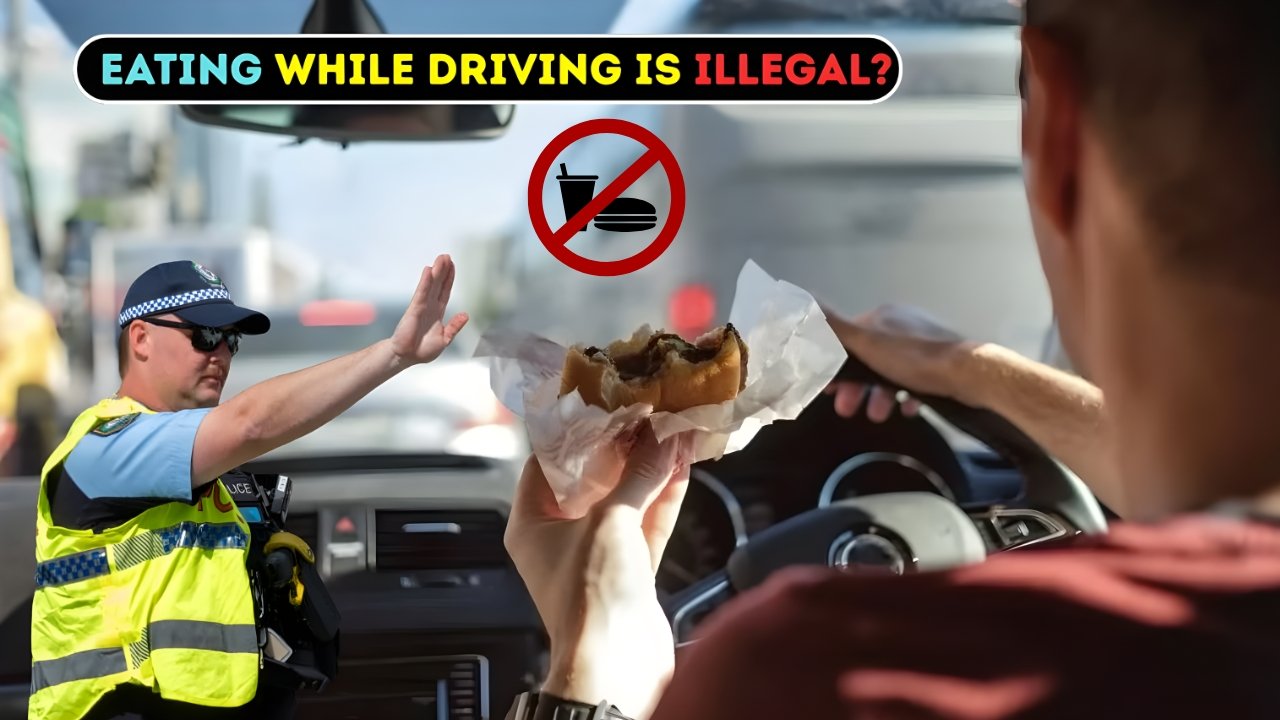As of 2025, Australian law does not have a specific provision against eating, drinking, or smoking while driving. However, these activities have become risky practices for Australian motorists considering recent national policy changes. Australian road safety advocates have raised flags that these activities involve the motorist’s attention as and classified these activities as distracted driving under recent policy changes. Australian motorists losing control while partaking these activities and become a menace to the community face heavy consequences, and these consequences become more punitive with recurrent offenses, including monetary penalties and demerit points.
Changes Australia’s 2025 Road Laws
In a new policy issued in October 2025, Australian road authorities will include eating, drinking, and smoking as activities that drivers can engage that will result in a loss of control to the vehicle. The motivation behind this policy change is to mitigate the rising number of road accidents occurring from minute distractions from vehicle control, predominantly in urban centers and highway. While these activities are technically legal, the police can issue fines against motorist and the police will be using the latest policy documents as the legal underpinning to enforce these guidelines.
What Counts as Distracted Driving?
The law’s focus is on “driving without proper control of the vehicle.” This umbrella rule covers New South Wales and Queensland, meaning activities as benign as eating, drinking a coffee, or even lighting a cigarette could draw police attention if they compromise driver safety. This has led to high-profile cases where offenders have been fined for eating cereal while driving or for the more classic, ‘driving with knees while holding food.’ These cases are described as negligent or careless driving.
Penalties and Enforcement
Each state ascribes different penalties for distracted driving. In NSW, the latest fines reach $2,200 while offenders in Queensland face increased penalties of $6,600 or imprisonment for severe cases. In the ACT, fines reach $8,000 for smoking with children in the car. Enforcement has shifted, and police willingly exercise discretion, using social media as surveillance to justify command, in line with a growing national attitude of zero tolerance concerning the amalgamation of distractions and driving on public roads.
| Activity | Law Status | Penalty/Consequence |
|---|---|---|
| Eating/Drinking | Not explicit | Fine if distracted |
| Smoking | Not explicit | Fine if distracted |
| Loss of Control | Illegal | Fines, demerits |
The Advocacy: Is This Just?
Proponents maintain these laws advocated safety and prompted drivers to finish food and drinks before driving. Critics chastise these laws as overreach and warn of “nanny state” intrusions into personal behavior. Nonetheless, all evidence and research indicate that even slight distractions translate into slower responses and pose greater risks. This implies that the overtly strict stance may be justified.
Safe Roads
Experts reiterate the benefits of planning ahead: eat, drink, or smoke before your driving. If you get hungry or thirsty while driving, you can even stop at rest areas and enjoy a meal or beverage. For example, a quick drink of something is distracting and you can suffer serious lapses in concentration. The risk of serious and life altering crashes is greatly amplified when these simple, easily avoidable, and little penalized rules are ignored.
Final Word
Under the 2025 Australian road laws, there is nothing illegal about eating, drinking or smoking, but diversion absolutely is and the loss of control of a vehicle is a justifiable and legal cause to concurrent enforcement. These laws should be a serious wakeup call to all drivers.
FAQs
Q. Is it legal to eat a snack while driving in Australia?
Not explicitly illegal. However, if it causes distraction, you can be fined.
Q. Is it illegal to smoke in the car?
Smoking is not illegal, but if you distract while driving you may be penalised.
Q. What happens if I lose control while eating or drinking?
Depending on the severity and the location, you may be fined, receive demerit points and take on potential criminal charges.



